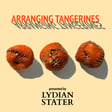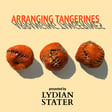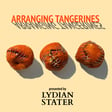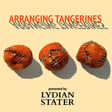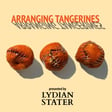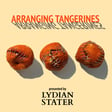
Arranging Tangerines Episode 44 - A Conversation with Kadir Kayserilioğlu
In this episode, we talk with video artist Kadir Kayserilioğlu about his recent work The Walls of Heaven, currently featured in the exhibition Pulsar as part of Projected Ecologies at MUCA Campus in Mexico City. We discuss the accidental origins of the piece, ideas of creation and control through terrariums and Sea Monkeys, god complexes in both art and gaming, reenactment as a narrative device, YouTube aesthetics in video essays, and how humor, chance, and contradiction shape Kadir’s broader practice. Plus, we hear about his earlier work The Garden of Forgetting, and a glimpse into what might come next.
Kadir Kayserilioğlu is an artist mainly works on experimental film and video art. His works have been invovled in various exhibitions and screening programs in Turkey and abroad. His artistic practice is grounded in an idea of play that operates across a wide range of forms including video games and collaborative, performance-based videos, documentation and experimental processes. His works often rely on a combination of instructions and protocols on one hand, and collective improvisational processes and chance operations on the other. This often results in works that challenge conventional notions of authorship and authority with a dark humoristic style, and show irreverence towards traditional hierarchies between forms of high and popular culture, assembling high production value with home made and DIY esthetics.
His areas of investigation include the nature of social reality, posthumanism, speculative fiction, finiteness, conspiracy theories and micro-stories. He often engages in strategies of the absurd, repurposing mythological narratives as well as science fiction and horror tropes towards a critical take on contemporary political dynamics.
https://www.kadirkayserilioglu.com/
https://www.instagram.com/kadirkayserilioglu
https://vimeo.com/kadirkayserilioglu
https://muca.unam.mx/pulsar.html
https://www.lydianstater.co/projected-ecologies
https://www.elisagutierrezeriksen.com/
